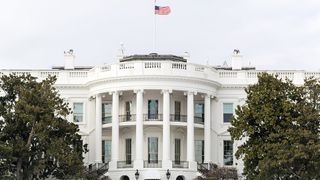CDD to Trump Administration: Key Privacy Outcome Must Include Policy Interventions

While ISPs are talking up common ground on a national privacy regime, ground that avoids prescriptive mandates and gives users qualified rights over specific information, the Center for Digital Democracy is telling the Trump Administration that what is essentially a proposed privacy "self-management" model won't cut it.
"Instead of advancing the cause of privacy, the only outcome such a model seems to produce is a dominant paradigm that
suggests that policy solutions must be centered on individual action, and that privacy is an individual, commodified good that can and should be traded for other goods," CDD told the National Telecommunications & Information Administration, the Trump Administration's chief communications policy adviser.
Back in September, NTIA sought input from stakeholders on s proposed "set of user-centric privacy outcomes that underpin the protections that should be produced by any Federal actions on consumer-privacy policy, and a set of high-level goals that describe the outlines of the ecosystem that should be created to provide those protections." That language signals the Trump Administration is not looking to come up with suggestions for prescriptive regulations in that space, which is not suprising given the President's emphasis on getting rid of regulations rather than creating new ones.
CDD says Congress needs to legislate a set of baseline principles and that any such effort must:
• set the scope of baseline legislation broadly and not preempt stronger legislation;
• grant not only basic rights to individuals and groups regarding data about them, but also
•advance equitable, fair and just uses of data (i.e., it must place limits on certain data uses and safeguard equitable, fair and just outcomes);
• bring about real changes in corporate practices (i.e.,set limits and legal obligation to those managing data and require accountability);
•should be consequential and aim to level the playing field (i.e., give government at all levels significant and meaningful enforcement authority to protect individual and common interests vis-à-vis powerful commercial entities and give individuals legal remedies).
And while ISPs and edge providers argue they are already protecting privacy but support a national framework, CDD sees it quite differently: "Today’s commercial practices have grown over the past decades unencumbered by regulatory constraints, and increasingly threaten the American ideals of self-determination, fairness, justice and equal opportunity."
Multichannel Newsletter
The smarter way to stay on top of the multichannel video marketplace. Sign up below.
Contributing editor John Eggerton has been an editor and/or writer on media regulation, legislation and policy for over four decades, including covering the FCC, FTC, Congress, the major media trade associations, and the federal courts. In addition to Multichannel News and Broadcasting + Cable, his work has appeared in Radio World, TV Technology, TV Fax, This Week in Consumer Electronics, Variety and the Encyclopedia Britannica.

